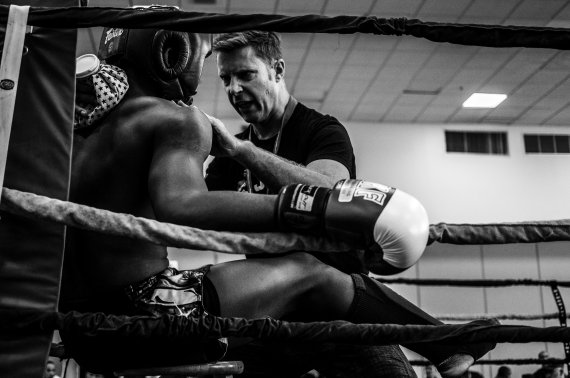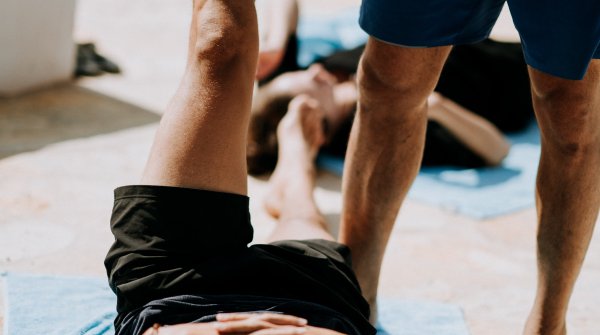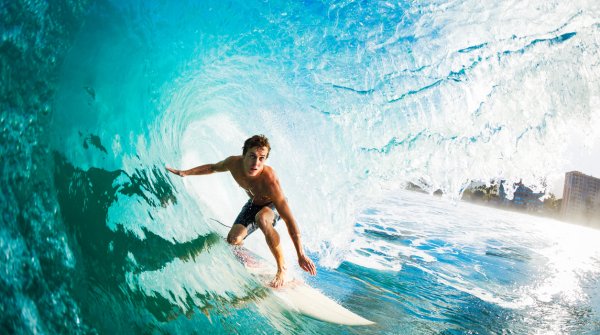
For a long time, the saying went: eat healthy and do lots of exercise, and you'll be fine. Today we know that this is only half the battle. Physical health is unquestionably important, but staying fit is ultimately about taking care of your mental well-being as well. The current generation is developing a new awareness of health, and the growing popularity of courses such as sports psychology shows that this positive trend is becoming more and more prevalent.
The pressure to succeed, injuries and even private problems - these are all challenges that top athletes have to deal with mentally. If they want to achieve top performance with pinpoint accuracy from the starting gun, perfectly trained movement sequences are not enough. The psyche also needs to be strengthened, especially for major competitions and in difficult personal phases of life. This build-up work is supported by the sports psychologist as mental coach of the athlete.
The job as a sports psychologist requires a successfully completed university degree. A bachelor's degree in psychology is often not enough to practice as a sports psychologist. In Germany, the professional title of psychologist is linked to a diploma or master's degree, and doctorates are also common and helpful or even a prerequisite for many good jobs.
Classically, the prospective sports psychologist first studies general psychology and then specializes in sports psychology. Direct study of the subject has also been possible for several years, as a master's degree at the state-run Martin Luther University Halle and at the private Medical School Hamburg. As a major in sports science, sports psychology is also offered at the private University of Applied Sciences for Health and Sport, Technology and Art, which is headquartered in Berlin and has additional campuses in Ismaning near Munich and Unna in North Rhine-Westphalia.
The Arbeitsgemeinschaft für Sportpsychologie (asp) has developed its own course content that enables psychologists and sports scientists with a master's degree to become sports psychologists. The postgraduate training supplements the content of the respective missing field of study and thus compensates for possible gaps. It is offered for the field of competitive sports by the Center of Mental Excellence under the direction of Dr. Christopher Willis
.For the area of health sport with the fields of work rehabilitation, prevention and sports for the disabled, the asp further training to become a sports psychologist takes place at the Universities of Kiel and Leipzig. Here, medical doctors and educators with diploma or master's degrees are also admitted upon application.
The asp's continuing education degrees entitle the holder to entry in the expert database of the Federal Institute for Sports Science, through which sports associations and top clubs frequently recruit their experts for sports jobs.
How much a sports psychologist earns depends very much on his or her employment relationship and qualifications. So there is no generally applicable lump sum here. However, you can definitely expect a starting salary of around 30,000 euros. The annual salary increases with professional experience, and payment also depends on the employer. As in other professions, the larger the employer, the more you earn.

According to Engbert, the sports psychologist also acts as an interface in the communication between coach and athlete. In team sports, he says, additional mediation is often required between teammates. The range of problems extends from emerging anxiety and genuine panic to eating disorders and depression, says Engbert. Dealing with defeats, as well as emotions after victories, is another area of work,
he said.Here it becomes clear how important mental health is. Athletes in particular appear fit to the outside world due to their athletic appearance, but often struggle with psychological problems because of the pressure to perform and the expectations placed on them. Then, when things don't go their way for a while, many really fall into a rut. A sports psychologist is the key lever here to get the professional back on track.
Competitive sports are an interplay of technique, tactics, athletics and mental strength. Top athletes train constantly to deliver peak performance in pressure situations. It is more difficult to adjust to concrete competition situations with local conditions, weather conditions and spectator reactions. Sports psychologists now help almost all squad athletes in major associations and clubs. In the best case, they know their protégés for a long time and build up a relationship of trust.
At the Winter Olympics in Sochi, two sports psychologists looked after the German squad, one of whom was graduate psychologist Dr. Kai Engbert. "The athletes train their mental cinema and learn to imagine situations extremely vividly," he reported about his work in an interview with Ärzte-Zeitung. To memorize the course and imagine the movement sequences, they visit the slope or track. He advises athletes to stand in the empty stadium and sometimes plays in sound recordings to prepare them for spectator reactions. "If the head doesn't play along and nervousness, fear of failure or one's own expectations lead to blockades and mistakes, a good physical condition is worth little," Engbert said.
.From many discussions with the athlete and also with the coach, the strategies for the mental approach would result. Relaxation techniques, for example, can be trained well. "If you notice shortly before the start that you are too tense, you can, for example, squeeze your buttocks together, and often that already helps." Only those who can relax, visualize, fade out, recharge positively and focus on the essentials are optimally prepared to perform, he said.

While sports psychologists have been a natural part of the coaching team in elite sports for about ten years, like sports doctors and masseurs, the job offer in the junior sector is rather rare. In order to improve psychological support there as well, the further training of trainers to become mental coaches has become a new field of activity for sports psychologists, who are becoming self-employed or putting their manpower at the service of independent companies and research institutions.
Sports psychology is much more than a degree program that promises specialization. The pressure and demands in professional sports are growing and the problems that come with it should not be underestimated: Conflicts between coaches and players, dissatisfied fans, periods of poor performance, and fears about the future. Sports psychologists are on hand to help the professionals and ensure a better mentality as well as more motivation. This ultimately benefits performance, but above all health.
Finally, we answer the most frequently asked questions about sports psychology studies and the profession of sports psychologist.
Here, a distinction must first be made between bachelor's and master's degree programs. Only those who already have a university degree can start the master's program. All other requirements depend individually on the university. The most common admission criterion is the numerus clausus (NC).
Most sports psychologists work in clubs, federations, sports teams (e.g. for the Olympics) or at universities/colleges.
With a degree in sports psychology, job prospects are rather average. Jobs are scarce and many graduates often only practice the profession independently as a sideline.

 Know-HowSports therapist: prevention helps
Know-HowSports therapist: prevention helps
- Awards
- Mountain sports
- Bike
- Fitness
- Health
- ISPO Munich
- Running
- Brands
- Sustainability
- Olympia
- OutDoor
- Promotion
- Sports Business
- Textrends
- Triathlon
- Water sports
- Winter sports
- eSports
- SportsTech
- OutDoor by ISPO
- Heroes
- Transformation
- Sport Fashion
- Urban Culture
- Challenges of a CEO
- Trade fairs
- Sports
- Find the Balance
- Product reviews
- Newsletter Exclusive Area
- Magazine




